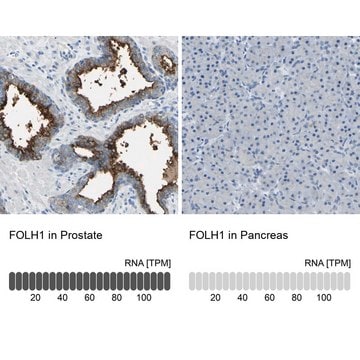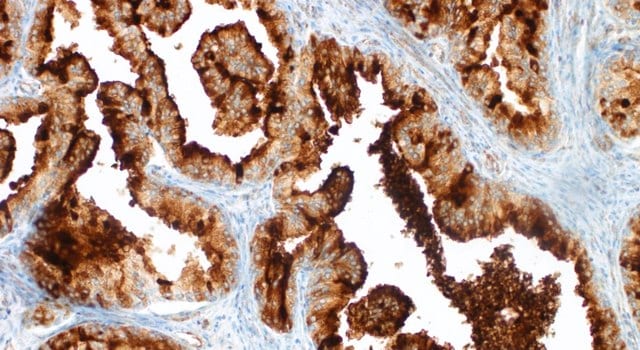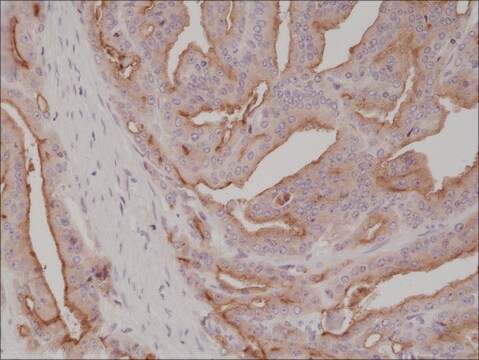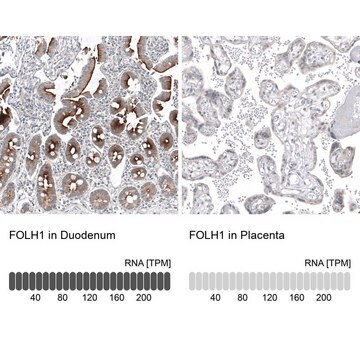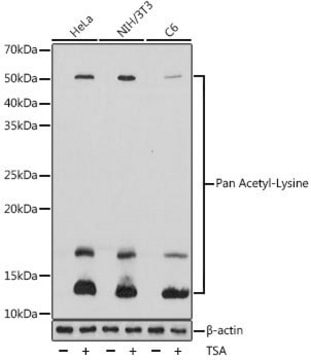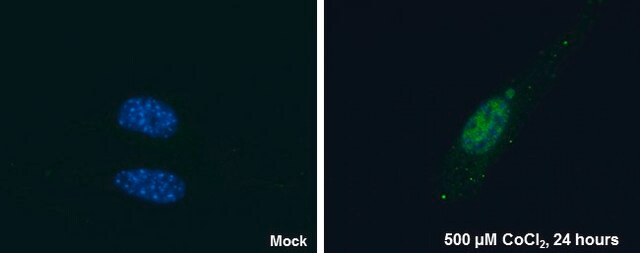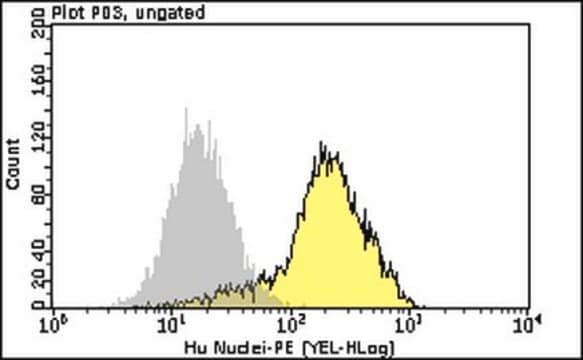ABS314
Anti-APPL1 Antibody
from rabbit, purified by affinity chromatography
Sinónimos:
DCC-interacting protein 13-alpha, Dip13-alpha, Adapter protein containing PH domain, PTB domain and leucine zipper motif 1
About This Item
Productos recomendados
biological source
rabbit
Quality Level
antibody form
affinity isolated antibody
antibody product type
primary antibodies
clone
polyclonal
purified by
affinity chromatography
species reactivity
rat, mouse, human
technique(s)
immunocytochemistry: suitable
immunohistochemistry: suitable
immunoprecipitation (IP): suitable
western blot: suitable
NCBI accession no.
UniProt accession no.
shipped in
wet ice
target post-translational modification
unmodified
Gene Information
human ... APPL1(26060)
Categorías relacionadas
General description
Immunogen
Application
Apoptosis & Cancer
Cell Cycle, DNA Replication & Repair
Immunoprecipitation Analysis: A representative lot from an independent laboratory immunoprecipitated APPL1 in HUVEC cell lysate (Lin, D. C., et al. (2006). Mol Cell Biol. 26(23):8928-8941.).
Immunohistochemistry Analysis: A representative lot from an independent laboratory detected APPL1 in liver tissues from mice fed with either a standard diet, high fat diet, or a high fat diet with exercise (Marinho, R., et al. (2012). J Cell Physiol. 227(7):2917-2926.).
Immunocytochemistry Analysis: A representative lot from an independent laboratory detected APPL1 in pancreatic islets and impaired GSIS cells of dietary and obese mice (Cheng, K. K., et al. (2009). Cell Metab. 9(5):417-427.).
Quality
Western Blotting Analysis: 0.5 µg/mL of this antibody detected APPL1 in 10 µg of A431 cell lysate.
Target description
Physical form
Storage and Stability
Other Notes
Disclaimer
¿No encuentra el producto adecuado?
Pruebe nuestro Herramienta de selección de productos.
Storage Class
10 - Combustible liquids
wgk_germany
WGK 2
flash_point_f
Not applicable
flash_point_c
Not applicable
Certificados de análisis (COA)
Busque Certificados de análisis (COA) introduciendo el número de lote del producto. Los números de lote se encuentran en la etiqueta del producto después de las palabras «Lot» o «Batch»
¿Ya tiene este producto?
Encuentre la documentación para los productos que ha comprado recientemente en la Biblioteca de documentos.
Nuestro equipo de científicos tiene experiencia en todas las áreas de investigación: Ciencias de la vida, Ciencia de los materiales, Síntesis química, Cromatografía, Analítica y muchas otras.
Póngase en contacto con el Servicio técnico